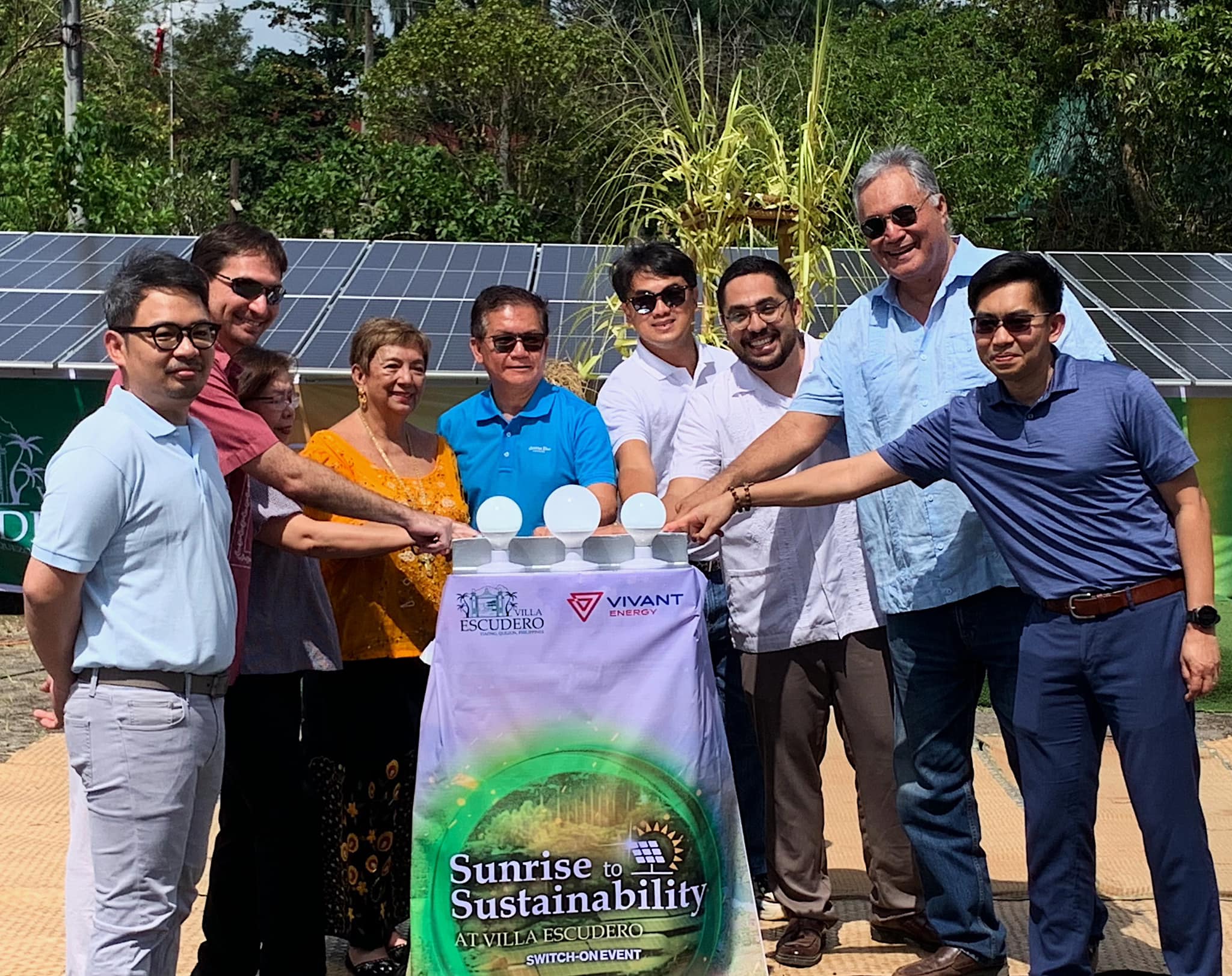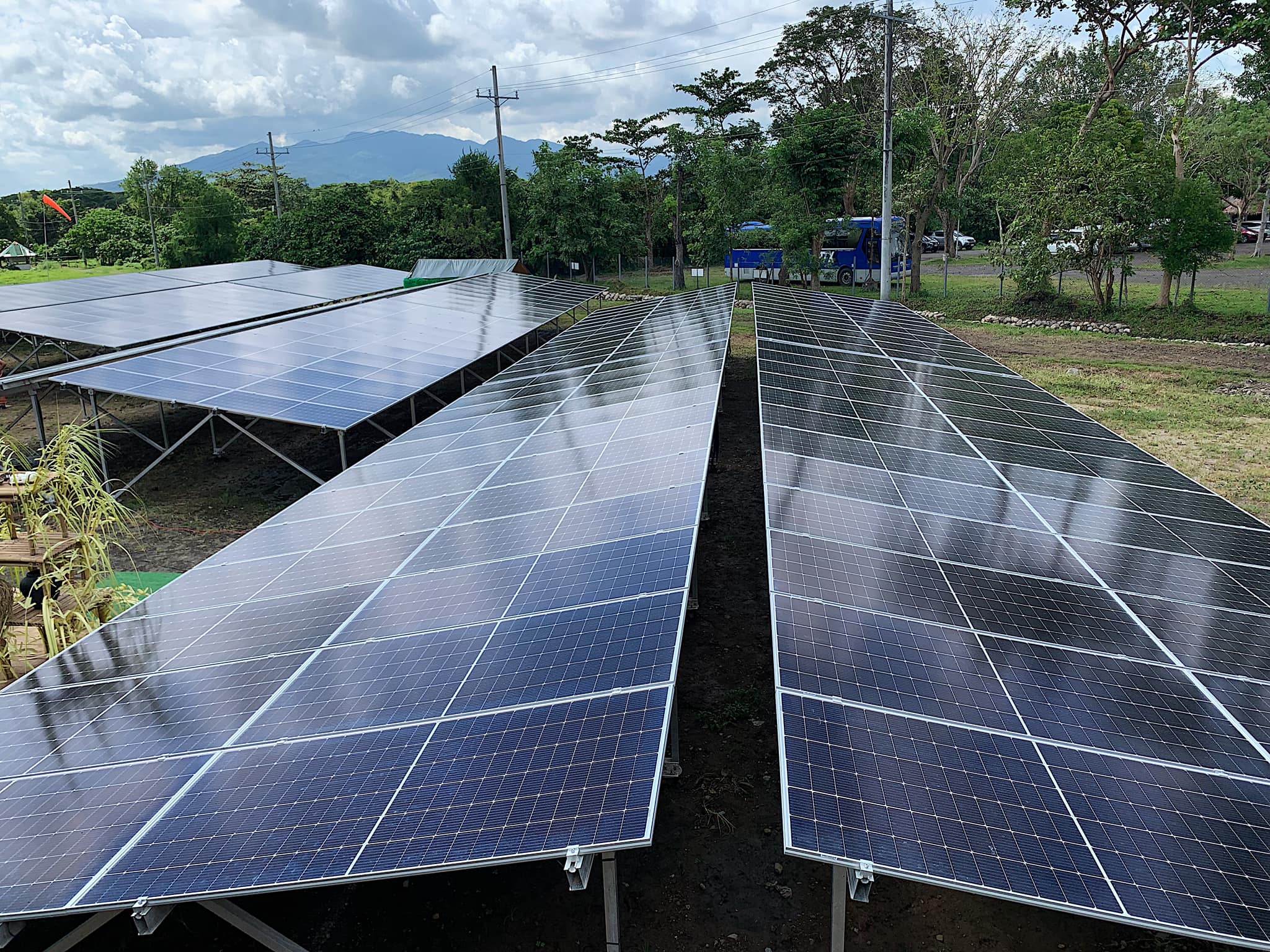How Villa Escudero boosts sustainability with solar facility
400-panel solar field 'to reduce 166 metric tons of carbon emissions'
By Mat Richter
If you visit Villa Escudero today, that 800-hectare eco-tourism estate thriving in the lush greenery of Tiaong town in Quezon, you wouldn’t have known it once stood as a sugarcane farm that had developed into a self-sustaining coconut plantation. This was achieved through its hydroelectric plant and desiccated coconut factory, which later paved the way for the estate to be built in 1929 and welcome the public in 1981.
Since then, the property has sought to push further its sustainability efforts—from reducing its carbon footprint to helping elevate local ecotourism.
It switched on its 400-panel solar energy facility within its vicinity, which is estimated to cut the resort’s power grid use by 310,000 kWh. According to the company, this effort will reduce 166 metric tons of carbon emissions.

“The project sets a benchmark for responsible tourism in Quezon province by meeting the growing expectations of eco-conscious travelers,” said Daniel Escudero, director and senior business development strategist at Villa Escudero.
In partnership with Vivant Corporation and non-profit Corenergy, the solar facility would get power from both the grid and its output during the day.
“In terms of the system grid tide, we don't have a battery system yet because the site facility is around 211 kilowatt-peak, which is whatever is produced by the facility. So there's no reason to or no possibility of storing this yet,” said Mark Habana, vice president at Vivant Energy. “But it's all planned. Beyond the requirement, we need to produce ours. That's the time we're in, so we're also going to explore the possibility of patenting.”
Habana said the facility’s smart technology has an energy management system, stating they can monitor real-time performance and deploy a team right away in case there’s a drop in conversion or power efficiency of the solar panels.
"We've been operating a renewable energy plant privately at the Escudero family since 1937. Over the years, we’ve saved hundreds of thousands of barrels of oil. Renewable energy is a proven solution worldwide and I believe it's the key to the future. Our government is supporting this shift, and we feel fortunate to be part of it," he said when asked about the possibility of solar energy being unreliable.
With every saving that the solar facility or the power generator provides the company, it said it’s able to reduce its operational costs “to protect the environment and community.”

“Definitely, we will explore once the life of the project reaches its end, or even before it reaches its end. At our scale of business, I think the most attainable at this point is solar, and we're very open to develop more renewable energy facilities,” he added.
Meanwhile, the estate has two hydroelectric power plants that, according to Habana, provide energy to the restaurant. When demand is low during weekdays, he said going 100 percent renewable becomes possible.
“A vision for sustainable tourism doesn't just protect our environment, but it should empower it to ensure that future generations will experience its natural beauty and cultural richness in full,” said Tiaong, Quezon Mayor Vincent Arjay Mea.